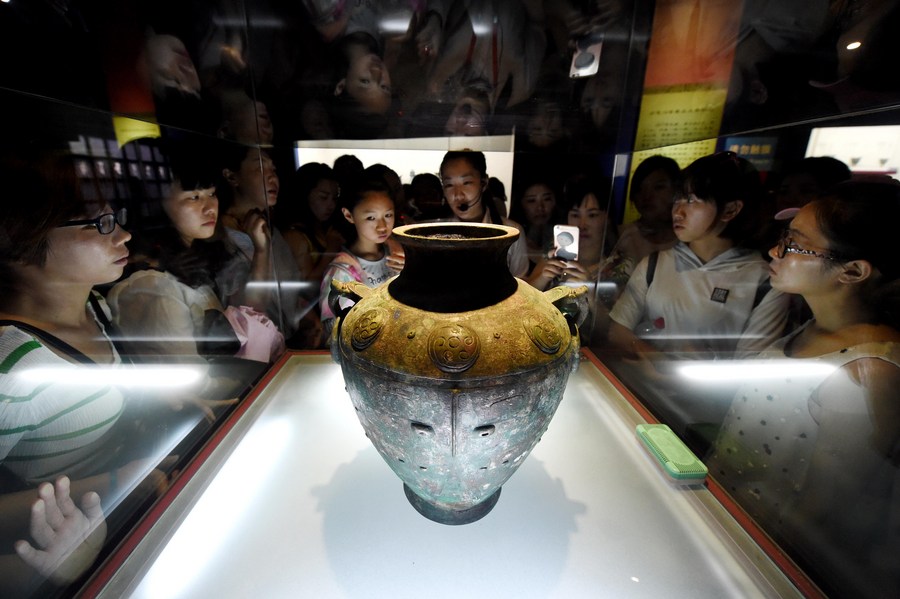
People visit the museum of Yinxu, or the Yin Ruins, one of China's oldest archaeological sites, in Anyang, central China's Henan Province, July 13, 2016. (Xinhua/Li Bo)
BEIJING, May 18 (Xinhua) -- On an afternoon in late October 2022, President Xi Jinping visited Yinxu, or the Yin Ruins, during his inspection tour to Anyang City in central China's Henan Province.
Situated on the banks of the Huanhe River in Anyang, the 3,300-year-old Yin Ruins have been confirmed as the capital site of the late Shang (Yin) Dynasty (1600 B.C.-1046 B.C.). They are the first ruins of their kind to receive such confirmation in the Chinese history.
Walking slowly into the Yinxu Museum, Xi, also general secretary of the Communist Party of China Central Committee and chairman of the Central Military Commission, attentively observed the bronze ware, jade ware, oracle bone inscriptions, and other unearthed relics.
Oracle bone inscriptions are among the relics unearthed at the Yin Ruins. Xi pointed out that oracle bone inscriptions retained evidence of the Chinese written language from 3,000 years ago, helping to extend recorded Chinese history to nearly 1,000 years earlier than previously believed.
"I have long been yearning to visit here. This time I come here to gain a deeper understanding of the Chinese civilization so that we can make the past serve the present, and draw inspiration for better building modern Chinese civilization," he said.
First discovered in 1899, oracle bone inscriptions are considered one of the world's four ancient characters and have been included in the UNESCO Memory of the World Register.
In November 2019, Xi sent a congratulatory letter on the 120th anniversary of the discovery of oracle bone inscriptions, describing them as the roots of fine traditional Chinese culture and saying that the discovery is of epoch-making significance in Chinese civilization and even in human civilization.
"With a long and continuous history stretching back to antiquity, the Chinese civilization shaped our great nation, and this nation will continue to be great," he said during the visit.
Since assuming the Party's top job in November 2012, Xi has shown great concern for the preservation of cultural relics and visited multiple museums during his domestic inspections, making a series of important instructions for the work in this regard.
On Tuesday, Xi visited the Yuncheng Museum in north China's Shanxi Province. He called for further efforts to advance the national research project on tracing the origins of Chinese civilization and the historical research on this civilization and improve the capabilities of protecting and utilizing cultural relics and passing on Chinese cultural heritage.
Over the years, the protection and utilization of cultural relics from the Yin Ruins have been strengthened. Among the programs is a new museum, which is under construction on the north bank of the Huanhe River.
Once completed, the new museum will be well-equipped to showcase the profound civilization of the Shang Dynasty as well as its contribution to the world. ■




